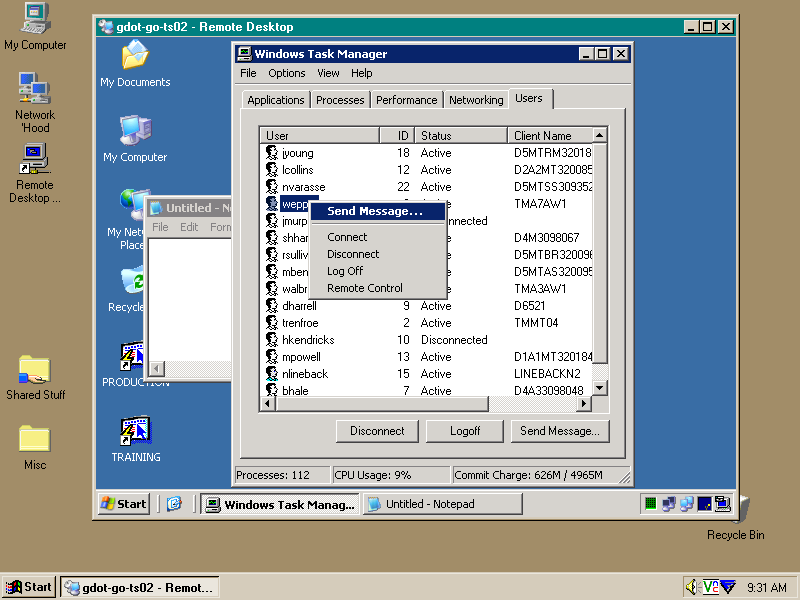
- WHAT IS WINDOWS TERMINAL SERVICES LOCAL SESSION FULL
- WHAT IS WINDOWS TERMINAL SERVICES LOCAL SESSION FREE
- WHAT IS WINDOWS TERMINAL SERVICES LOCAL SESSION WINDOWS
However, I’ve yet to see (m)any of these commonly occurring in the wild. *Yes, there are Event ID’s like 1146, 1147, and 1148 which look great in Microsoft’s documentation as a very useful source of information. So, I decided to leave those out for now, but perhaps I will add them in the future.
WHAT IS WINDOWS TERMINAL SERVICES LOCAL SESSION WINDOWS
The Windows Event ID’s in the XP days were different than those in Vista+ Operating Systems. So, I decided to create a blog post that I hope can serve as a succinct one-stop shop for understanding and identifying the most commonly encountered and empirically useful* RDP-related Windows Event Log ID’s/entries for tracking and investigating RDP usage on a Windows Vista+ endpoint. At any rate, as they say, necessity is the mother of invention. I will say JPCERTCC did an awesome job capturing a ton of information here, I just can’t quite decipher or discern the clear order of events and some appear out of order (at least how I have encountered them, but maybe I’m reading it wrong…). Though I’ve found parts of the answer in posts here and there, each of them were missing parts of the puzzle (either missing ID’s, descriptions, explanations, and/or overall how they fit together in a chronological fashion). hopefully find a single website to point to with all this information). As such, I recently set out to try and find an easy route to the solution for this problem (i.e. However, it seems the community continues to encounter the same struggle in identifying and understanding RDP-related Windows Event Log ID’s, where each is located, and even what some of them mean (no thanks to some of Microsoft’s very confusing documentation and descriptions). From that point on, as I sporadically encountered related questions/confusion from others in the community, I would simply refer to my cheat sheet to provide an immediate response or clarification – saving them from the hours of repeated questioning and research I had already done. That is until one day I finally got tired of repeating the same questions/research and just made a cheat sheet laying out the most common RDP-related Event ID’s that I’d encountered along with their relevance and descriptions.
WHAT IS WINDOWS TERMINAL SERVICES LOCAL SESSION FULL
I would read a few things here and there, think I understood it, then move on to the next case – repeating the same loop over and over again and never really acquiring full comprehension. Logon ID allows you to correlate backwards to the logon event (4624) as well as with other events logged during the same logon session.Early in my DFIR career, I struggled with understanding how exactly to identify and understand all the RDP-related Windows Event Logs. Logon ID is a semi-unique (unique between reboots) number that identifies the logon session.Account Domain: The domain or - in the case of local accounts - computer name.
WHAT IS WINDOWS TERMINAL SERVICES LOCAL SESSION FREE

Windows logs this event when a user disconnects from a terminal server (aka remote desktop) session as opposed to an full logoff which triggers event 4647 or 4634. 4779: A session was disconnected from a Window Station


 0 kommentar(er)
0 kommentar(er)
